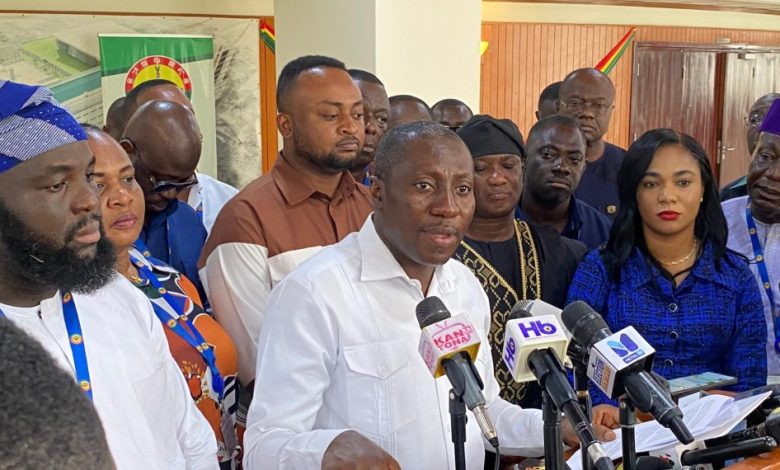Afenyo-Markin: Mahama’s 120-Day report is a recycled failure

The Minority in Parliament has launched a fierce critique of President John Dramani Mahama’s 120-day performance report, accusing him of abandoning the bold reformist agenda he championed during the campaign and instead presiding over what they described as a “recycled failure.”
Speaking at a press conference on Thursday, May 8, Minority Leader Alexander Afenyo-Markin dismissed the President’s recent national address as a hollow display of self-congratulation that fails to reflect the lived realities of Ghanaians. He argued that the President’s much-touted social contract remains largely unfulfilled.
“This is not just a speech; it is a call to remembrance and resistance,” Afenyo-Markin asserted. “It is a forensic audit of the presidency that campaigned with the urgency of a reformer but now governs with the indifference of a ruler long exhausted by ideas.”
The Minority Leader expressed concern that the early promise of the administration had already begun to falter, claiming that President Mahama’s leadership is entering what he called its “lame duck days.”
“Now the 120 days are over, the promises have collapsed, the excuses have run dry, the reckoning must begin,” he said. “Let it be said plainly to every Ghanaian — you were not given a reset; you were sold a recycled failure.”
He went further to accuse the government of betraying the trust of the electorate by choosing political expediency over genuine transformation. According to him, the Mahama administration is “trading the will of the people for political convenience,” and he urged citizens to be vigilant and vocal in defending the integrity of the democratic process.
“Rise up to defend the Republic,” he implored Ghanaians.
The Minority’s criticism comes in the wake of President Mahama’s national broadcast, during which the President claimed his government had made remarkable progress in just 120 days. He cited significant reforms such as the repeal of controversial taxes, institutional restructuring, and steps toward legislative accountability.
However, Afenyo-Markin argued that these so-called achievements are largely superficial, lacking the depth and impact needed to resolve the country’s deep-seated challenges.
He dismissed the government’s claims as “cosmetic,” contending that they fall far short of addressing pressing issues like economic hardship, mass unemployment, and stalled governance reforms.










